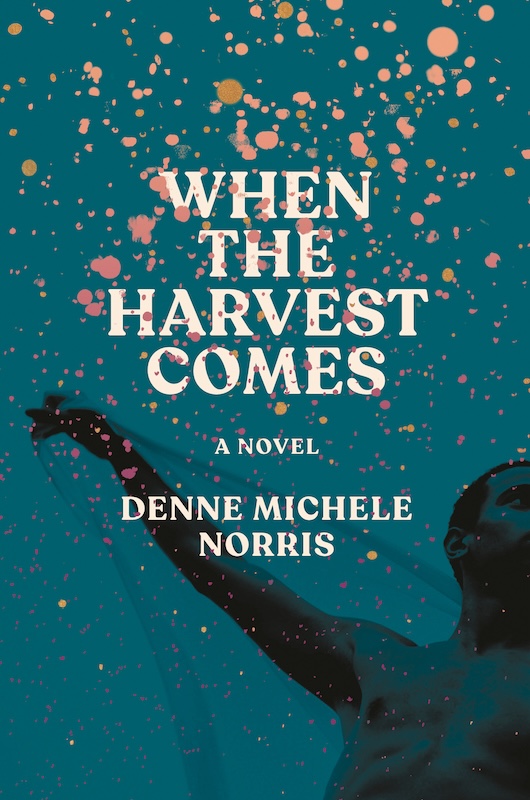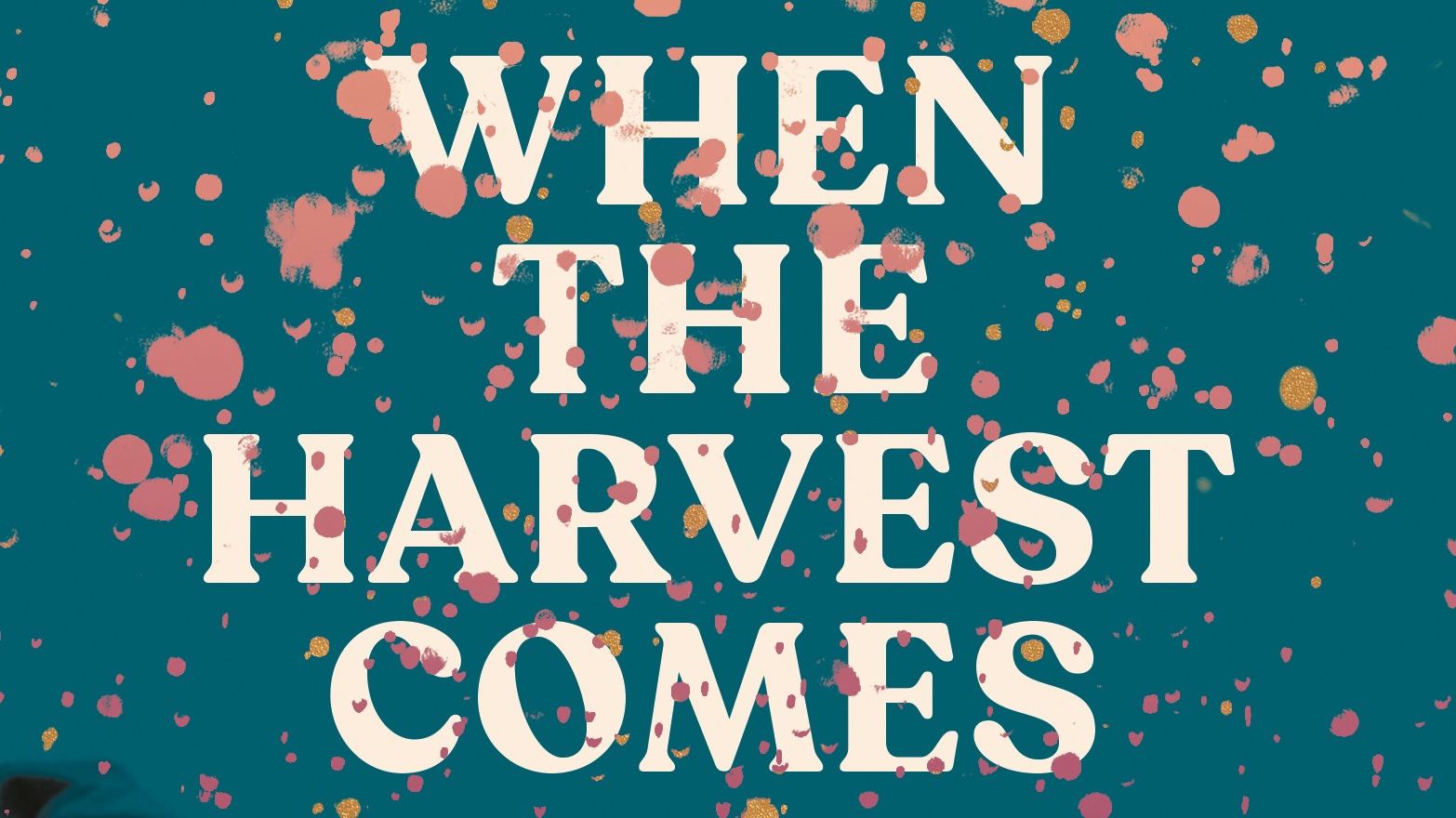Electric Literature is pleased to reveal the cover of When the Harvest Comes by editor-in-chief Denne Michele Norris, which will be published by Random House on April 15, 2025. You can pre-order your copy here.
In this heart-wrenching debut novel, a young Black gay man reckoning with the death of his father must confront his painful past—and his deepest desires around gender, love, and sex.
“I got tired of running away from what I should’ve been running toward.”
The venerated Reverend Doctor John Freeman did not raise his son, Davis, to be touched by any man, let alone a white man. He did not raise his son to whisper that man’s name with tenderness. But on the eve of his wedding, all Davis can think about is how beautiful he wants to look when he meets his beloved Everett at the altar. Never mind that his mother, who died decades before, and his father, whose anger drove Davis to flee their home in Ohio for a freer life in New York City, won’t be there to walk him down the aisle. All Davis needs to be happy in this life is Everett, his new family, and his burgeoning career as an award-winning violist. When Davis learns during the wedding reception that his father has died in a terrible car accident, years of childhood trauma and unspoken emotion resurface. Davis must revisit everything that went wrong between them, his fledgling marriage and irresistible self-confidence spiraling into a pit of despair. In resplendent prose, Denne Michele Norris’s When the Harvest Comes fearlessly reveals the pain of inheritance and the heroic power of love, reminding us that, in the end, we are more than the men who came before us.
Here is the cover, designed by Emily Mahon:

Author Denne Michele Norris: “Some years ago, I took my first international vacation. A dear friend had decided to celebrate his birthday in Puerto Vallarta, Mexico. In this friend group we were all in our late twenties: early in our careers, without much in the way of disposable income. But we scraped the money together and joined him. One night, we dispersed: one of us went to a pool party, another went to a bar, and another stayed home eating tacos on the lanai. I’d made plans to meet up with a man I’d met earlier that day. I arrived at our chosen spot at the chosen time, but he was nowhere to be found. I called him, I texted him, I waited for 30 minutes, but he never came. I was deeply disappointed. Earlier that day when that man had approached me, talked to me, asked for my phone number and made plans with me, I’d felt blissfully chosen. But in that moment, standing outside the restaurant, peering left and right, hope written all over my face, I began to feel invisible.
As I waited, I realized I’d likely been forgotten—surely, no harm intended on his part. I could’ve easily texted one of my friends and joined them at the pool party or the bar, but for a reason that remains unknown to me, I couldn’t bear the thought of it. Or perhaps, what I couldn’t bear was showing up and joining my friends, thereby signifying having been forgotten by an attractive man yet again. This was foolish, all of it. I knew that, but I felt it anyway. Unable to stay there any longer, I instead walked to the beach. The sun had set, the horizon criss-crossed with blue, purple, and the last embers of golden sunlight. The sky was dotted with pink and orange glittering stars. I was almost entirely alone on that beach. For a few moments I sat, wiggling my toes in the sand, feeling windswept and loose. I opened iTunes, started playing Beyonce’s Lemonade, which had been released a few months prior. When I stood, my intention was to head back to the hotel, but instead I closed my eyes and began to dance. I did something I rarely do; I released all tension in, and control of, my body. I removed my clothes, and I danced alone in the moonlight in a place that felt very much like the edge of the earth. I felt, suddenly, that I was exactly where I was supposed to be at exactly the right time, in precisely the right circumstances.
When my editor at Random House showed me this cover a few months ago, my breath caught in my chest. Its beauty arrested me, and I fell silent. A night sky, speckled in pink and orange, beaming like stars. Gold, for glamor, for a little extra shimmer, raining down upon an unclothed Black body in motion. Elegant, poised, secure in their person, and their surroundings; a dancer, perhaps. Believe it or not, I’d never shared this memory with anyone on my publishing team; it never even occurred to me in those early discussions about what the cover of my book might look like. And yet, in some way, I’d been exposed, as though the smallest, most vulnerable version of myself was suddenly in the spotlight. I bathed myself in love and generosity for that boy, and for all the boys who move through the world the same way I used to. Staring at this cover, I remembered dancing in the moonlight on the beach. I remembered the feeling of the sand sifting between my toes, the wind sweeping around me, and the truth that washed over me that night, nearly a decade ago: that just as I was, I was more than enough.”
Designer Emily Mahon: “Despite the protagonist Davis’ years of childhood trauma, the novel leaves us with a feeling of jubilation in the acceptance of their life and the love they choose. The gold and pink confetti-like dots are a gesture to this feeling of celebration. The figure suggests movement, relating to Davis’ fluidity of gender and sexuality.”
Read the original article here
